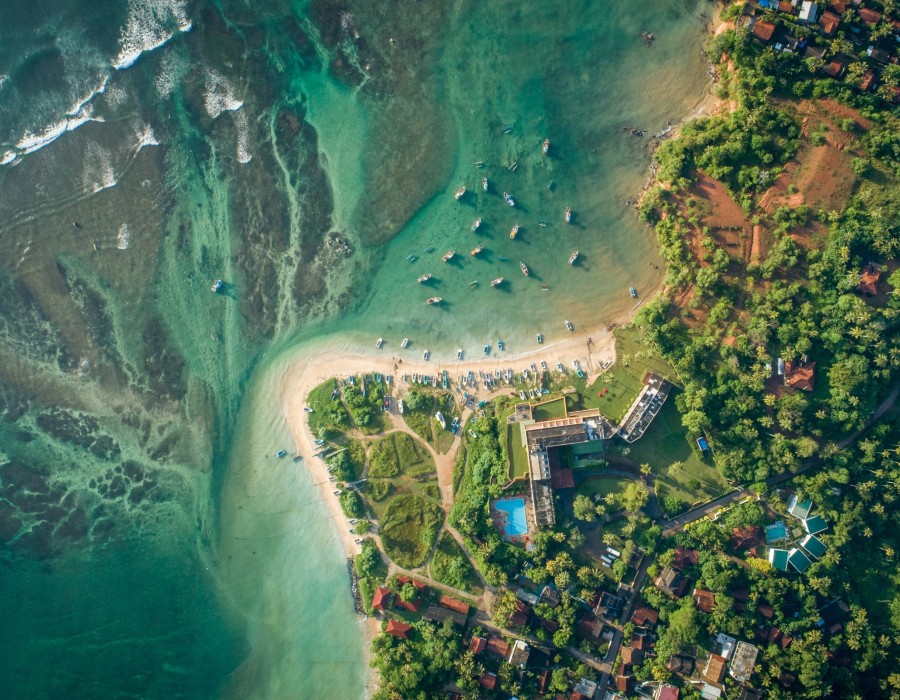Nestled in the heart of the Indian Ocean, Sri Lanka is a tropical paradise renowned not only for its golden beaches and ancient heritage but also for producing some of the finest tea in the world. Often referred to as Ceylon Tea, Sri Lankan tea enjoys an esteemed place on the global stage for its unique flavor, purity, and tradition. For travelers and tea lovers alike, exploring Sri Lanka's scenic tea country is an experience unlike any other—an immersive journey into rolling plantations, misty highlands, and rich colonial history. No wonder many Sri Lanka tour packages now include visits to tea estates and tasting sessions as must-do highlights.
The Origins of Ceylon Tea
The story of Ceylon Tea began in the 19th century when British colonialists introduced tea to the island as an alternative to coffee. After a devastating coffee blight in the 1860s, planters turned to tea, with James Taylor—a Scottish planter—leading the charge. His success laid the foundation for what would become a booming industry. Today, Sri Lanka is one of the largest tea exporters in the world, with tea accounting for a significant share of the country’s economy.
What sets Ceylon Tea apart is not just its history but its terroir. The island’s diverse climate, fertile soil, and elevation levels—from lowland coastal areas to the cool central highlands—contribute to producing a variety of distinct flavors and aromas. Whether it's the brisk and full-bodied teas from Nuwara Eliya or the mellow, golden-hued varieties from Uva, every region offers something unique.
A Tea-Lover’s Paradise: Where to Go
Tea tourism in Sri Lanka is thriving, thanks to the sheer beauty and cultural richness of its plantation regions. The central highlands, particularly around Nuwara Eliya, Ella, and Hatton, are at the heart of this experience. The train ride from Kandy to Ella is often described as one of the most scenic in the world, winding through lush tea estates, waterfalls, and misty mountain peaks.
Once in the tea country, you can visit working plantations and factories, many of which date back to the colonial era. Tours typically include a walk through the tea fields, an explanation of the plucking and production process, and a tasting session where you can savor various grades and blends. Some estates even offer tea pairing experiences with chocolates, cheeses, or local delicacies.
From Leaf to Cup: The Art of Tea-Making
Understanding how tea is made adds a whole new dimension to your visit. The process begins with hand-plucking the tender top leaves and buds—a skill honed over generations. These leaves are then withered, rolled, oxidized, and dried to create different types of tea, such as black, green, and white.
What’s fascinating is how small variations in processing can lead to vastly different flavor profiles. For example, black tea undergoes full oxidation, giving it a robust, bold character, while green tea is only lightly oxidized, resulting in a more delicate, grassy flavor. White tea, the rarest and most expensive, is minimally processed and has a subtle, nuanced taste.
When you explore the tea trails of Sri Lanka, you'll witness these processes first-hand and gain a deeper appreciation for the craftsmanship involved. These experiences are among the most enriching things to do in Sri Lanka, offering a blend of education, culture, and sensory delight.
Colonial Charm Meets Modern Luxury
Many tea estates have been transformed into luxurious boutique hotels and lodges, offering travelers the chance to stay amidst the very fields that produce their morning brew. The Ceylon Tea Trails in Hatton is one of the most iconic examples, where restored planters' bungalows offer old-world charm with modern comforts.
These accommodations often include private butler service, gourmet dining, and curated excursions like guided hikes, garden picnics, and of course, tea tastings. Whether you're sipping a freshly brewed cup on a veranda overlooking the hills or learning how to brew the perfect pot from an in-house expert, the experience is nothing short of magical.
Sustainable and Ethical Tea Tourism
In recent years, there has been a growing focus on sustainable and ethical practices within the tea industry. Many plantations now promote organic farming methods and fair trade certifications. When visiting, tourists are encouraged to support these responsible businesses by purchasing directly from estate outlets and choosing guided tours that emphasize community engagement.
Some tea estates also run social initiatives for the benefit of their workers and surrounding communities, including schools, healthcare programs, and skill development workshops. By engaging in tea tourism thoughtfully, travelers can contribute to these positive efforts and ensure that their visit leaves a lasting impact.
The Perfect Souvenir
No trip to Sri Lanka’s tea country is complete without bringing some of the magic back home. Most plantations have gift shops where you can purchase freshly packed teas, beautifully boxed assortments, and even tea-infused skincare products. Whether you're a seasoned connoisseur or a casual tea drinker, you'll find something to suit your palate.
Look out for specialty teas like Silver Tips, Orange Pekoe, and regional varieties like Uva or Dimbula. These teas make thoughtful gifts and lasting reminders of your journey through Sri Lanka’s verdant highlands.
Final Thoughts
Sri Lanka's tea story is not just about a beverage; it's about culture, history, sustainability, and the warmth of a country that welcomes you like family. From sipping freshly brewed Ceylon Tea in a colonial bungalow to walking hand-in-hand with pluckers across misty estates, tea tourism offers a soulful exploration of the island’s heritage.
So the next time you plan your escape to this tropical gem, don’t just think of beaches and temples—think of emerald hills, fragrant brews, and the rhythmic hum of tea production. The world-famous tea of Sri Lanka awaits you, cup by glorious cup.
And once you’ve had your fill of Ceylon charm, why not set your sights on golden deserts and glittering skylines?
Check out: Plan Dubai Holidays 2025 | First Timer Guide





Comments